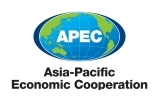By APEC Human Resources Development Working Group


Issued by the APEC Human Resources Development Working Group
Singapore
Job seekers today lack the skills needed to work in the digital economy, says a survey on digital skills in the workforce.
According to the Closing the Digital Skills Gap survey, 75 per cent of respondents – comprised of employers, government officials, and academics – report a significant skills mismatch. Without more upskilling programs to improve digital expertise, the survey warns, many workers may lose their jobs to automation.
“Skills mismatches hurt workers and the broader economy. Productivity declines when key jobs remain vacant. APEC requires more skills training programs to reduce the global shortage of highly-skilled workers, which may soon exceed 38 million people,” said Professor Dong Sun Park. Professor Park, Chair of the APEC Human Resources Development Working Group, speaking at the 2019 APEC Closing the Digital Skills Gap Forum, which launched the survey prepared by Wiley, an education and professional training solutions provider.
The forum, taking place in Singapore, gathered representatives from 16 APEC economies to explore policy options that can strengthen digital skills and the digital economy – a key priority set by APEC 2019 host Chile.
The digital economy is rapidly evolving but education systems are not adapting at the same pace. Many companies and organizations across many sectors, from healthcare to financial services and retail, are unable to fill positions requiring skills in data collection and analytics – and the vacancies cost billions of dollars of lost revenue annually. Yet more than half of survey respondents admit that curricula at many academic institutions do not sufficiently bring digital skills into classrooms.
More than 50 per cent of respondents also report that government agencies have a weak understanding of the digital skills landscape.
“It was eye-opening to learn that up to 45 per cent of survey respondents said that they do not update job requirements every year,” said Andrew Tein, Chief of Staff to the CEO at Wiley and co-chair of the forum. “Let’s track these insights so we can prepare the right strategies to close the skills gap and foster more growth and prosperity across the region.”.
At the forum, participants finalized a roadmap to support and scale up upskilling and reskilling programs carried out by employers, governments, and educational institutions across APEC. Implementation of the roadmap builds upon the work of APEC’s Data Analytics and Raising Employment initiative, or Project DARE, which developed and implemented a set of industry-driven recommended actions to strengthen data science and analytics competencies, or DSA.
The Project DARE framework has informed the work of eight universities, companies and associations to date, including the Analytics Association of the Philippines, Hong Kong University of Science and Technology (HKUST), and Ho Chi Minh University of Technology and Education (HCMUTE).
“With the imminent need to facilitate the transition of workforce in the age of disruption, ProjectDARE provides a tripartite platform for governments, academia and business across the APEC economies to discuss human capital development in data science and analytics,” said Kar Yan Tam, Dean of HKUST’s School of Business and Management. “This platform connects all of us closely together to manage the transformation wisely”
Added Associate Prof. Dr Ngo Van Thuyen, Chairman of HCMUTE’s University Council, “The research of Project DARE on the demand of human resources in data analytics and its proposed competencies helped HCMUTE to be more confident on the decision to establish the Bachelor’s program in Data Engineering in 2017.”
Another initiative from the Analytics Association of the Philippines is collaborating with employers, government agencies and academic institutions to train 30,000 workers over the next three years. The ‘whole-of-government’ approach will utilize Project DARE competencies.
The roadmap also recommends the sharing of government statistical methodologies and best practices, as information on how governments track and organize data on their workforce is insufficient. More sharing of information and best practices can enable the establishment of a more standardized approach to upskilling.
# # #
For further details, please contact:
Dini Sari Djalal +65 9137 3886 at [email protected]
Michael Chapnick +65 9647 4847 at [email protected]
More on APEC meetings, events, projects and publications can be found on www.apec.org. You can also follow APEC on Twitter and join us on Facebook, LinkedIn.
This news release can also be viewed on the APEC website: https://www.apec.org/Press/News-Releases/2019/0719_Digital
